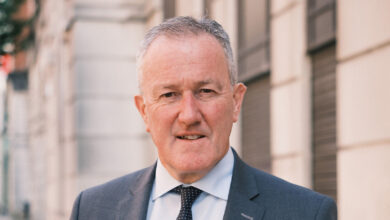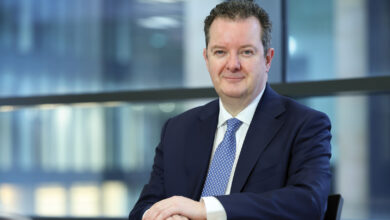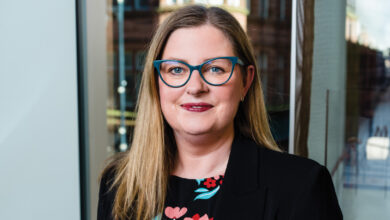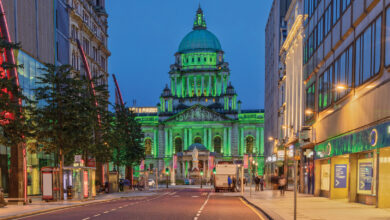Jim Fitzpatrick: from politics to business
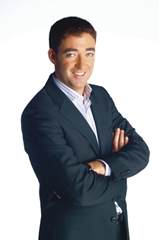 Jim Fitzpatrick reflects on covering local politics as he moves to being BBC Northern Ireland’s new Business and Economics Editor.
Jim Fitzpatrick reflects on covering local politics as he moves to being BBC Northern Ireland’s new Business and Economics Editor.
If you’ve ever been to Charles de Gaulle airport in Paris, you will doubtless remember the weird and wonderful walkways and escalators that transport travellers around this futuristic space.
You don’t get much time to decide which walkway to choose, and once you’re onboard there’s nothing you can do to alter the general direction of travel until you can jump over to another. Pressing the emergency stop is an option, but rarely a good choice.
Since first experiencing the place many years ago as a student, it has become my own little metaphor for life’s big choices.
Having travelled the walkway of presenting political programmes for the last eight years at the BBC, an opportunity arose to switch tracks to business and economics. I can’t say that I didn’t hesitate – but I jumped and am very happy with the choice.
I joined the BBC to present The Politics Show at its inception. I had worked in newspapers, radio and television but this was my first go at live presentation. It was daunting, but exciting.
We quickly established the new Sunday slot as an important fixture on the political scene. Our approach was traditional enough – interviews and in-depth reports – dressed up in a dress-down style that fitted with a lunchtime weekend audience.
In the early days we faced competition from UTV which had launched its own Sunday programme. This was a bit of a problem in terms of finding guests – much as politicians love the limelight, their families do sometimes insist on a day off – but it also helped reinforce Sunday as a big day for politics.
The Politics Show was designed for devolution – a network programme with regional ‘opts’ – and an early feature of the programme was a determined effort for the network part of the programme to try and link-up with the regional parts.
In our case, this generally meant live chats with Jeremy Vine explaining the latest crisis in the peace process. Stormont had been suspended just a few months before we came on air and – although we didn’t know it at the time – it wasn’t going to return for another four years.
But despite the stalemate in the institutions, politics itself was full of high drama: Drumcree, decommissioning, the Robert McCartney murder, the Northern Bank robbery, the rise of the DUP, the demise of David Trimble, the tentative moves towards Sinn Fein and DUP talks, the IRA standing down, Paisley and Adams meeting at Stormont.
This ‘high politics’ of the peace process was our meat and drink. With the return of Stormont and a functioning Assembly, the bread and butter issues began to receive more attention – though the days of high politics and high drama weren’t over. We witnessed the end of the Paisley era, the potential end of the Robinson leadership, a threat to the entire process over a failure to devolve policing and justice, and then the resurrection of both Robinson’s leadership and the entire process with a deal on justice that allowed Stormont to see out its first full term.
Dovetailing our Stormont coverage with the Sunday programme made a lot of sense and allowed me to see the nitty- gritty of Assembly business close up during the week while trying to offer an analysis of the big picture at the weekend.
As the Assembly and Executive return for what promises to be a second full term, they will no doubt reaffirm their commitment to make the economy their number one priority. It was hard to believe that commitment last time around when there was so much unfinished business of high politics and low political dealing to sort out. This time, it’s a more credible boast.
That political context, combined with the unprecedented global pressures and changes affecting our economy, all added up to the most interesting time to take an economic journalism brief. This particular walkway had a neon sign above it flashing: “Jump aboard now, Jim.” I look forward to the challenges ahead, unsure of where exactly I’ll be taken, but confident that I’ll enjoy the journey and hopeful that BBC viewers and listeners will too.

